Indians are growing curious about homegrown cuisines thanks to a bunch of committed chefs and restaurateurs pushing their limits to serve up food that Indians haven't tried
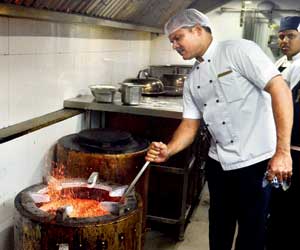
We are about to take a bite of kosambri when Divya Prabhakar of The Bengaluru Oota Company stops us. There are rules, she says. "No wasting food, and you must eat only with your hands." We empty a spoonful of the cucumber and moong dal salad on the banana leaf placed in a copper thali; it feels awkward to eat it with our hands.
ADVERTISEMENT
 A chef lights the chulha at Arth, Khar. Pic/ Datta Kumbhar
A chef lights the chulha at Arth, Khar. Pic/ Datta Kumbhar
Prabhakar, who is the co-founder of the Bengaluru restaurant that serves Mangalorean and Gowda cuisine, is in the city for her first pop-up at The Bombay Canteen. "We want to promote the regional cuisine we serve, thoroughly," she says in defence.
This year has been all about rediscovering Indian food at restaurants. From the Hyderabadi junglee tandoori teetar at Juhu's +91, pearl potatoes from Mizoram at Bandra's Arth, the nine-grain navadhanya idli at Madras Diaries to dal chawal palida at The Tha'l Co and Palace cuisine at Talaiva.
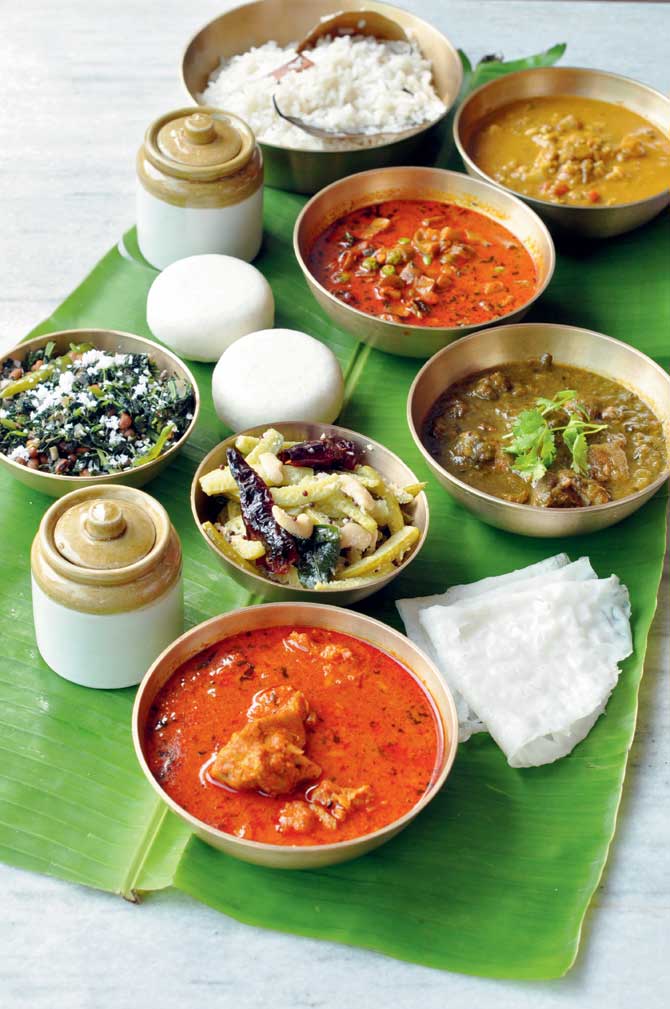
The Canteen Karnataka spread that was offered by Lower Parel’s The Bombay Canteen at a pop-up
The trailblazers
The first fire was lit in 2012 and much of the credit for the focus on regional Indian cuisine goes to Manu Chandra, chef and restaurateur, who started Monkey Bar, the watering hole with a regional menu, first in Bengaluru. In May 2015, it opened its doors in Bandra where he decided he would serve Bihari liti choka and aloo vadiyaan cutlet. That same year, in February, Floyd Cardoz had opened The Bombay Canteen. "All cuisine emerging from the country cannot be slotted together. It's like discussing 'European cuisine', which does not exist. There is French, Spanish, Italian, etc.," says Cardoz, a Top Chef alumnus and Mumbaikar, who moved to America in the late 1980s.
In fact, Cardoz's sense was that Indian food had slowly lost its glamour. "Young diners were shying away from it. I wanted to make it a young diner's cuisine, by giving it a friendly twist. Now, many more chefs are unafraid to take the plunge. It has finally become a force in restaurants, and I see it continue to grow." Cardoz proved his commitment to regional Indian fare when last month, he opened O Pedro at BKC, Mumbai's only upscale Goan eatery.
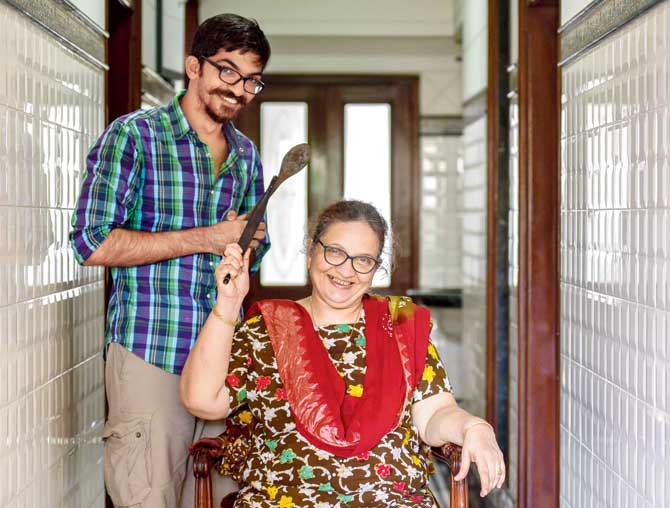
Munaf Kapadia and mother Nafisa made food which, until a few years ago was available to non-Bohri foodies only at weddings, is now available to everyone
The rising
The past two years have seen hits and misses, of course, with more players realising that a pan-Indian menu will not suffice.
Chef Amninder Sandhu took it a notch higher by introducing a gasless-cooking menu at Arth, Bandra's latest elite diner outpost. "There are two ways to treat Indian food, make it rustic or new age. The unfortunate bit is this -- we had brought Indian food to a point where we no longer know what the real thing is. So, I decided to go back to the basics, and adopt the chulha and sandpit cooking technique that our ancestors used. My food is best enjoyed with hands, and I have seen how most customers leave the fork and knife untouched," he says. Delhi-restaurateur Priyank Sukhija went the other way and took the nouveau Indian route when he launched JLWA last month. Chef Roshan Seth offers a Sindhi kadhi in the guise of a seafood soup, and Benarasi dum aloo in the form of Italian gnocchi.
Collaborations, bringing down expert chefs and tracing the right recipes is helping this movement. At 7 Bungalows-located Basanti and Co, co-owner Karan Rochlani has a team of Qureshi-lineage chefs. "Who else would be able to make the galoutis and kebabs the way we expect them to be made?" he says.
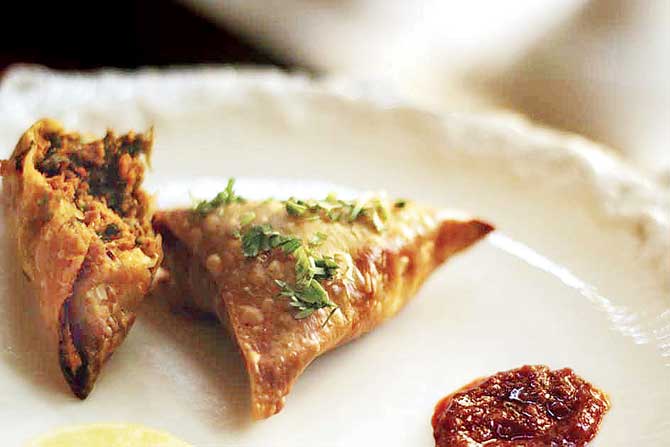
The Bohri Kitchen's famed mutton samosas
Rise of the regional
Meanwhile, those who enjoy first-mover advantage, like Munaf Kapadia of The Bohri Kitchen, has seen his fan base grow. Veteran actor Rishi Kapoor attended his pop-up, tucking into Bohri dishes eaten the traditional way on a giant thaal. He started small in January 2015, with his mother Nafisa at their Colaba residence, inviting friends over for a home-cooked meal for a price. Her smoked mutton kheema samosas spread the word among Mumbai's foodies and the The Bohri Kitchen experiential lunch
pop-up at his home, for a maximum group of 25, earned its fame.
This July, Authenticook, a platform that offers homecooked meals across cuisines, is said to have received R1.5 crore in funding from Booking.com. "We were shortlisted for their booster programme. We received the funding on the merit of our contribution to promoting cultural heritage and local empowerment," says co-founder Ameya Deshpande. The company has presence in 12 states, including Pondicherry, Udaipur, Delhi and Kochi, with verified 130 hosts.
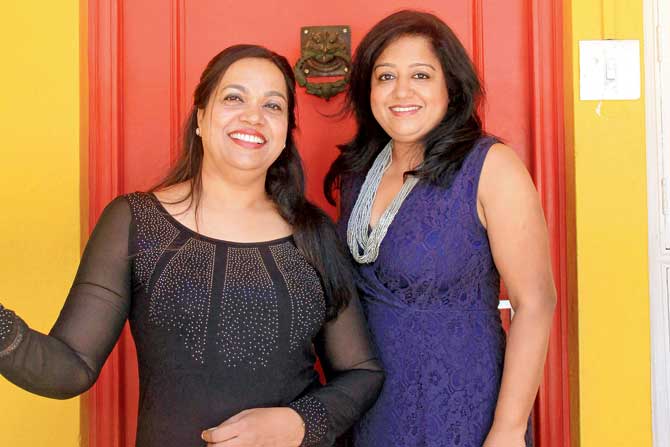
Vishal Shetty and Divya Prabhakar founded Bengaluru Oota Company to promote regional Gowda and Mangalorean cuisine
Homebound
The lesson from last year then is that Indians are more than willing to pay for real Indian food, whether traditionally prepared or modernised, as long as they are experiencing flavours that are new to them and rooted. But we have a long way to go thinks Gaurav Gidwani of VFM bar chain, Bar Stock Exchange. "Indians will travel the world and try every cuisine, but they miss the chatka of ghar ka khana. There was a recognition of that gap that needed filling, and a horizon is now in sight, but we have a long way to go. Restaurants have to see commercial prospects and make tweaks in their format if they hope to make a difference, one dish at a time."
 Subscribe today by clicking the link and stay updated with the latest news!" Click here!
Subscribe today by clicking the link and stay updated with the latest news!" Click here!






